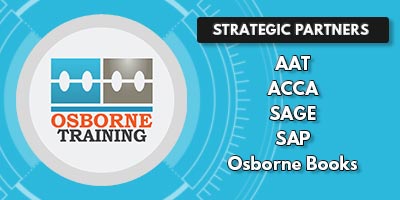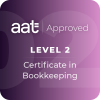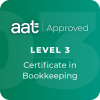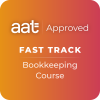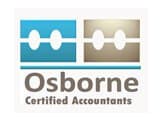
Unlocking Your Potential: How to Develop and Showcase In-Demand Accountancy Skills in the UK
As someone who has worked in the accountancy industry for several years, I understand the importance of developing and showcasing in-demand accountancy skills.
With the ever-evolving landscape of the industry in the UK, it is essential to stay updated with the latest trends and updates.
In this article, we will explore the various accountancy skills in demand in the UK, how to develop them, and the importance of accountancy qualifications and training.
A. Introduction to Accountancy Skills
Accountancy skills refer to the abilities and knowledge required to perform financial tasks, including bookkeeping, financial accounting, management accounting, and auditing.
These skills are crucial in the preparation of financial statements, analyzing financial data, and offering advice to businesses and individuals.
In the UK, accountancy skills are highly valued, and many companies require individuals with these skills to manage their finances effectively.
B. Accountancy Skills in Demand in the UK
The accountancy industry in the UK is constantly evolving, and as such, there are specific skills that are highly in demand. These skills include:
1. Data Analysis and Management
The ability to analyze and manage data effectively is essential for anyone working in the accountancy field.
In today’s world, data is immense, and companies need individuals who can help them make sense of it all.
Having a good grasp of data analysis tools such as Excel, Power BI, and Tableau can set you apart from the competition.
2. Tax Preparation and Planning
Tax is a critical aspect of the accountancy industry, and individuals who can help businesses and individuals prepare and plan their taxes are in high demand.
Knowing the UK tax system and being able to provide effective tax advice can make you an invaluable asset to any organization.
3. Financial Reporting
The ability to prepare and analyze financial reports is a core skill in the accountancy industry.
Companies need individuals who can prepare accurate and concise financial statements, interpret financial data, and provide recommendations to improve financial performance.
C. Trends in the Accountancy Industry
The accountancy industry is continually changing, and it’s essential to stay updated with the latest trends. Some of the current trends in the industry include:
1. Automation
The use of technology to automate repetitive tasks in the accountancy industry is on the rise. This trend is driven by the need to achieve efficiency and reduce errors in financial reporting.
2. Cloud Accounting
Cloud accounting is becoming increasingly popular, allowing businesses to access their financial data from anywhere, at any time. This trend is driven by the need for flexibility and remote work.
3. Virtual and Augmented Reality
Virtual and augmented reality are emerging trends in the accountancy industry. These technologies are being used to provide immersive experiences to clients, making financial data more engaging and accessible.
D. How to Develop In-Demand Accountancy Skills
Developing in-demand accountancy skills requires a combination of education, training, and experience. Here are some tips on how to develop these skills:
1. Attend Accountancy Courses
Attending accountancy courses is an excellent way to develop in-demand accountancy skills. These courses provide a structured learning environment, allowing you to learn the latest trends and updates in the industry.
2. Get Certified
Certifications such as AAT, ACCA, and CIMA are highly valued in the accountancy industry. These certifications demonstrate your expertise in the field and can help you stand out from the competition.
3. Seek Mentorship
Working with a mentor who has experience in the accountancy industry can be an excellent way to develop your skills. A mentor can provide guidance, advice, and support as you navigate the industry.
E. The Importance of Accountancy Qualifications and Training
Accountancy qualifications and training are essential for anyone looking to build a career in the industry. These qualifications provide a solid foundation of knowledge and skills that are highly valued by employers. In addition, they demonstrate your commitment to your career and your willingness to learn and grow as a professional.
F. Types of Accountancy Courses Available in the UK
There are various types of accountancy courses available in the UK, ranging from short courses to full-time degree programs. Some of the most common types of courses include:
1. Professional Qualifications
Professional qualifications such as AAT provide a structured learning environment.
2. Short Courses and Workshops
Short courses and workshops are an excellent way to learn specific skills or topics in the accountancy industry. Browse through CPD Courses offered at Osborne Training which you may find useful
3. Degree Programs
Degree programs such as Bachelor’s and Master’s degrees in accountancy provide a comprehensive understanding of the industry and prepare you for a career in the field.
G. Tips for Showcasing Your Accountancy Skills
Showcasing your accountancy skills can be challenging, but here are some tips to help you stand out:
1. Create a Professional Portfolio
Create a professional portfolio highlighting your skills, experience, and achievements. This portfolio can be in the form of a website, LinkedIn profile, or physical portfolio.
2. Attend Networking Events
Attending networking events can be an excellent way to showcase your skills and meet potential employers or clients.
3. Volunteer or Take on Freelance Work
Volunteering or taking on freelance work can help you build your portfolio and gain valuable experience in the industry.
H. Career Prospects in the Accountancy Field
The accountancy field offers a range of career prospects, including:
1. Financial Accountant
Financial accountants prepare financial statements, analyze financial data, and provide advice to businesses and individuals.
2. Management Accountant
Management accountants provide financial information to help businesses make informed decisions and improve financial performance.
3. Auditors
Auditors review and analyze financial statements to ensure they are accurate and comply with relevant regulations.
I. Accountancy Job Search Tips
Here are some tips to help you land your dream job in the accountancy industry:
1. Tailor Your CV and Cover Letter
Tailor your CV and cover letter to the specific job you are applying for, highlighting your relevant skills and experience.
2. Use Your Network
Leverage your network to find job opportunities and get referrals.
3. Prepare for Interviews
Prepare for interviews by researching the company and the role, and practicing your answers to common interview questions.
J. Conclusion
Developing and showcasing in-demand accountancy skills is essential for anyone looking to build a career in the industry.
By attending accountancy courses, getting certified, seeking mentorship, and building a professional portfolio, you can set yourself apart from the competition and land your dream job.
Remember to stay updated with the latest trends in the industry and continue to learn and grow as a professional.
